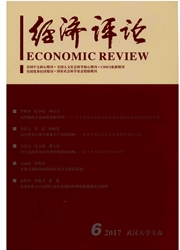

 中文摘要:
中文摘要:
经验观察发现,三十年来,我国省际城乡居民消费一直存在“经济发展越落后的地区,城乡居民消费差距越大”的现象。本文构建1978—2007年省际面板数据,基于不同模型的计量检验结果表明这种现象的存在,在经历了改革开放初期的“集体贫困”之后,这种现象在1980年代中期以后的二十年间显得尤为突出。而一些省份在经济发展到一定阶段后,城乡居民消费差距开始下降,这是未来发展的希望所在。本文还从社会发展、经济现状、政府行为、基础设施和对外贸易五个方面对影响省际城乡居民消费差距的因素进行了较为详细的考察,研究表明,加快农村基础设施建设、促进教育公平和完善农村社会保障体系等措施有助于迈向理想的共同富裕。
 英文摘要:
英文摘要:
This paper probes into the relationship between urban and rural residents' consumption disparity and economic performance of regions. Empirical observation shows that disparity between urban and rural residents' consumption is negatively related to regional economic performance in China, namely, the poorer the region is, the larger the urban and rural residents' consumption disparity will be. We construct panel data on provincial level in the period of 1978 - 2007. All the econometric analysis based on different models validates this relationship. It is worth noting that disparity between urban and rural residents' consumption in some regions tend to go down in recent years when economy has developed to a high extent. Besides economic performance, other factors are included in our regression such as social development, government behavior, infrastructure structure, foreign trade, and so on. It is shown that these factors have positive effect on residents' consumption.
 同期刊论文项目
同期刊论文项目
 同项目期刊论文
同项目期刊论文
 期刊信息
期刊信息
